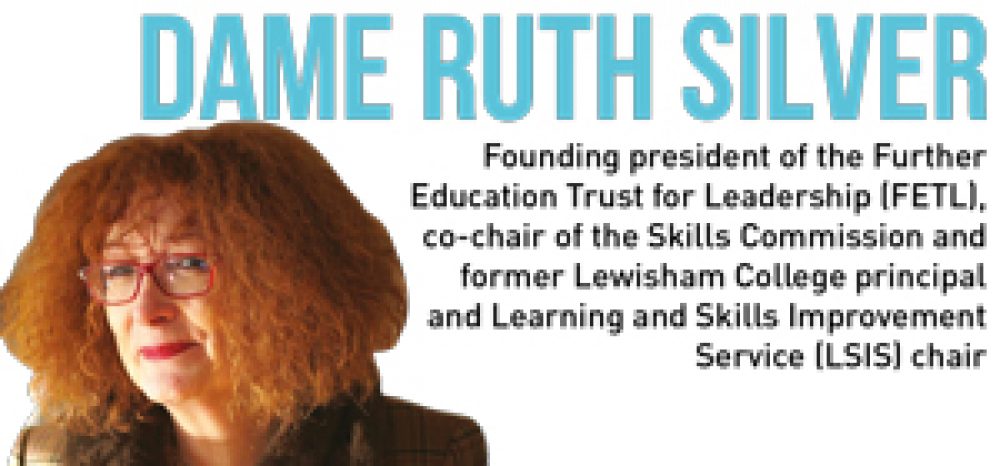Lewisham Southwark College and Greenwich Community College are both considering merger as part of reviews with the FE Commissioner having been rated as inadequate. Dame Ruth Silver argues for a broader assessment of South East London FE that does not necessarily entail merger.
Here we go again, round and round the mulberry bush, looking at mergers as the solution to yesterday’s problems, lacking serious strategic intent, with the obvious operational focus serving today’s need for good housekeeping while failing tomorrow’s opportunity to act in fellowship, with the whole system of providers in local education, training and employment provision.
Yet again it is restricting what our sector can become in service to its peoples.
What a waste of an unignorable moment: even worse, yet again it is combining weakness with weakness and failing to honour the wisdom of Gregory Bateson who cautions that, ‘it’s difference that makes a difference, sameness gives us more of the same.’
We can and need to do better than the usual response — more of the same is dangerous to more institutions.
The vicious funding attack on adult and community education in colleges and elsewhere, following decades of continual squeeze, closes down avenues where colleges and their learners are known to thrive
Any serious analysis of the South East London colleges’ difficulties clearly reveals that the state they’re in is, in large part, the outcome of consistent long term funding-led operational squeezes from stronger, privileged and more improving parts of the whole system.
To illustrate, the terrific success of Adonis’ Challenge Initiative in London’s reinvigorated, repurposed schools has resulted in an extreme narrowing of the pipeline which brought a strong supply of young people through our doors: they are now staying where they are and thriving and colleges struggle without them.
Add to that the rise and rise in the valuing of apprenticeships in the hands of independent learning providers and employers has also narrowed a pipeline of other young adults and colleges also struggle without them.
The vicious funding attack on adult and community education in colleges and elsewhere, following decades of continual squeeze, closes down avenues where colleges and their learners are known to thrive. Universities too have taken up supply routes for folks who were previously the population of FE.
The state of the colleges in the sector is just as much sending out serious distress signals about systems in collision as it is about inadequate funding, perilous timescales for change and a crisis in succession as our colleagues leave or fall. It is Darwinian.
What to do? As ever, we have been very near to scoping solutions on this and they were cut short when funding ceased. The LSIS regional sustainability advisers, some seven years ago, participated with respected others in how, in local circumstance, a truly connected system of education and training could happen — and with some enlightened London chief executives, we even got as far as rehearsing some of the parts of strategic planning for the whole system working within a progressive borough.
Two things got in the way, funding of course, but we all know that money is rarely only ever about money — it is also a signifier of territories, power clashes, respect , love even, and votes, of course.
As a sector, we have much to learn about the importance of subsidiarity in a collective contribution to a bigger goal than simply the institutional.
FE Commissioner Dr David Collins stands in a place of possibility as the reviews begin — he is absolutely the one who can invite contributors from the wider local system, starting with what’s walking towards the area, what’s being asked of all provision, players and communities, construct with others the coming strategic context and what is needed to capture it for all, with performance analysis for positioning on strengths.
He must call on ambitions, the evidence and research of other systems and sectors for this is a time for new thinking.
Review is inadequate, reform is not enough. This could be the time for the reformulation of our purpose, in modern times.









Your thoughts